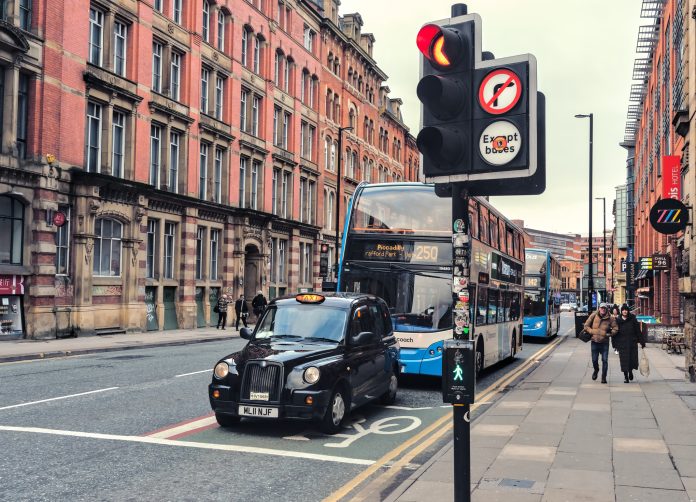For drivers in Greater Manchester, the government has supported a new £86 million scheme aimed at improving air quality in the region without imposing additional charges on motorists
This is part of a plan to address nitrogen dioxide (NO2) pollution, which has been linked to various health issues, particularly in urban areas.
The new scheme marks a significant shift from the approach taken by other regions in the UK, where Clean Air Zones (CAZ) have been introduced.
These zones typically charge older, more polluting vehicles to reduce NO2 emissions. However, Greater Manchester’s local councils have shown they can meet the legal limits for air quality improvement without relying on these charges. This plan is expected to help the region comply with air quality targets much faster.
Reducing pollution from public transport
A key element of the new plan is the investment in cleaner, greener public transport. The scheme will fund the introduction of 117 new buses, including 40 zero-emission buses and 77 buses that meet the Euro VI emissions standard.
These new buses will significantly reduce pollution from public transportation, one of the largest sources of nitrogen dioxide in urban areas. The plan also includes a £51.1 million allocation for bus investment, which also covers the installation of necessary charging infrastructure.
In addition to cleaner buses, the investment package includes £5 million for traffic management measures. These measures will help alleviate congestion, another contributor to air pollution. By making traffic flow more smoothly, these initiatives hope to reduce emissions from idling vehicles, further improving air quality.
Cleaner transport within Manchester city
The government has also committed £8 million to help transition Greater Manchester’s taxi fleet to cleaner, more environmentally friendly vehicles.
Taxis are a key part of urban transport in the city, and their conversion to low-emission models will directly impact reducing local pollution levels.
Local leaders in Greater Manchester have been able to present a clear case that their plan, which focuses on investment in cleaner transport and traffic management, will achieve the same air quality improvements as a Clean Air Zone but without the financial burden that these zone’s would place on residents and businesses. This decision allows the region to avoid the costly and often controversial approach of charging drivers to enter certain areas.
The government’s decision not to implement a Clean Air Zone in Greater Manchester shows a growing recognition of the need to tailor air quality solutions to local conditions.
While Clean Air Zones have proven effective in other cities, they may not always be the best fit for every region. By supporting Greater Manchester’s alternative approach, the government is acknowledging that a more flexible, investment-driven model can also achieve significant environmental benefits.
Improving air quality step by step
This £86 million package is part of the UK’s wider efforts to meet its legally binding air quality targets, including reducing nitrogen dioxide concentrations to no more than 40 micrograms per cubic metre annually.
These targets are essential for protecting public health, as poor air quality is one of the leading environmental risks to human health, contributing to respiratory and cardiovascular diseases, particularly in vulnerable communities.
The backing of Greater Manchester’s plan is also a significant step in the government’s wider strategy to create a more sustainable and integrated transport system across the UK.
With the success of the Bee Network, a new public transport system is already underway in Greater Manchester, and the region is seen as a leader in transforming urban transport and tackling pollution through innovative solutions.
Investing in cleaner buses, greener taxis, and improved traffic management is expected to reduce air pollution and contribute to a more sustainable and connected urban environment. By focusing on solutions that avoid additional charges on drivers, Greater Manchester is setting an example of how cities can tackle air pollution without placing further financial strain on their residents.











